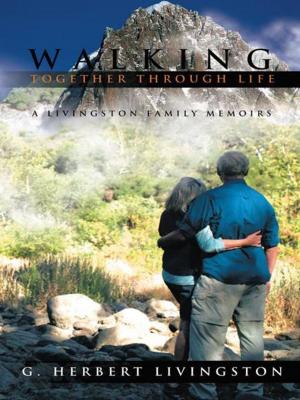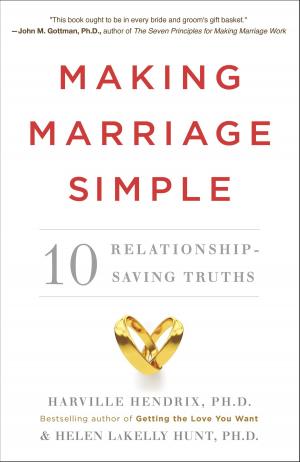Filming Family History: How to Save Great Stories for Future Generations
Nonfiction, Family & Relationships| Author: | Clarence Jones | ISBN: | 9781370484874 |
| Publisher: | Clarence Jones | Publication: | July 29, 2016 |
| Imprint: | Smashwords Edition | Language: | English |
| Author: | Clarence Jones |
| ISBN: | 9781370484874 |
| Publisher: | Clarence Jones |
| Publication: | July 29, 2016 |
| Imprint: | Smashwords Edition |
| Language: | English |
Before early humans learned how to write, the stories of their history existed only in the memories of the elders. Sitting around a campfire, children listened raptly as their parents and grandparents, uncles and aunts told what it was like the day they killed the mammoth. Or how nearly everyone drowned – generations ago – in the time of the great flood.
ONLY THE LEGENDS SURVIVED
As tribal elders died, their memories of family history usually died with them. A few of the stories survived, and evolved into legends. Human memory is flexible. It was hard to determine how much of a legend was true, how much had been embellished as the stories were relayed from one generation to the next.
IMPORTANCE OF FAMILY STORIES
Family stories and history have always been extremely important to us as members of the human tribe. They tell us who we are, where we’ve been, how we got here. They can explain some of our physical and personality traits. They can shape the lives of youngsters. But only if the stories survive.
FRAGILITY OF THE STORIES
Some famous people write their memoirs, and preserve their personal stories. But for most of us, family stories are just as fragile as they were when we were living in caves.
THEY WILL SOON BE GONE
There are wonderful stories, marvelous stories, just sitting there, on the edge of extinction. The aging process, disease and death will soon erase them. With today’s technology, everyone can be a film maker to document their family history. Because virtually every cell phone has a built-in video camera that can shoot remarkably good audio and video.
CAMERA SHYNESS
But interviewing older people can be difficult. They’re often camera-shy. They don’t like to see what time has done to them, or hear what the years have done to their voices. They’re often bewildered by – and wary of – all these new, electronic gadgets. So you have to work at making them comfortable with the process. And you will need to guide the conversation as it unfolds.
I'VE NEVER TOLD ANYONE BEFORE
There are many memories in families that have never been discussed. Like what happened in combat. Or the grief that followed the death of a child. Sometimes those experiences have never been told because the family member thought nobody cared. Part of the skill in filming family history is convincing older people that you do care. That their lives were - and are - important.
WHAT IT WAS LIKE TO BE THERE
This book explains that the key to great story-telling has always been describing what it was like to be there. That is the priceless treasure of filmed stories told by loved ones. That’s what this book is about. It shows you how to set up, conduct, and record those interviews, then organize them into fascinating home movies that tell what it was like to be there in your family’s past. Clarence Jones, the author, was a reporter for 30 years, followed by a second career as an on-camera coach for government and business executives. He shows and tells in this book the secrets he learned that can uncover fascinating stories lurking in the memories of those on camera. “Wow,” they may say, as they finish an anecdote from their childhood. “I hadn’t thought about that in years.”
Before early humans learned how to write, the stories of their history existed only in the memories of the elders. Sitting around a campfire, children listened raptly as their parents and grandparents, uncles and aunts told what it was like the day they killed the mammoth. Or how nearly everyone drowned – generations ago – in the time of the great flood.
ONLY THE LEGENDS SURVIVED
As tribal elders died, their memories of family history usually died with them. A few of the stories survived, and evolved into legends. Human memory is flexible. It was hard to determine how much of a legend was true, how much had been embellished as the stories were relayed from one generation to the next.
IMPORTANCE OF FAMILY STORIES
Family stories and history have always been extremely important to us as members of the human tribe. They tell us who we are, where we’ve been, how we got here. They can explain some of our physical and personality traits. They can shape the lives of youngsters. But only if the stories survive.
FRAGILITY OF THE STORIES
Some famous people write their memoirs, and preserve their personal stories. But for most of us, family stories are just as fragile as they were when we were living in caves.
THEY WILL SOON BE GONE
There are wonderful stories, marvelous stories, just sitting there, on the edge of extinction. The aging process, disease and death will soon erase them. With today’s technology, everyone can be a film maker to document their family history. Because virtually every cell phone has a built-in video camera that can shoot remarkably good audio and video.
CAMERA SHYNESS
But interviewing older people can be difficult. They’re often camera-shy. They don’t like to see what time has done to them, or hear what the years have done to their voices. They’re often bewildered by – and wary of – all these new, electronic gadgets. So you have to work at making them comfortable with the process. And you will need to guide the conversation as it unfolds.
I'VE NEVER TOLD ANYONE BEFORE
There are many memories in families that have never been discussed. Like what happened in combat. Or the grief that followed the death of a child. Sometimes those experiences have never been told because the family member thought nobody cared. Part of the skill in filming family history is convincing older people that you do care. That their lives were - and are - important.
WHAT IT WAS LIKE TO BE THERE
This book explains that the key to great story-telling has always been describing what it was like to be there. That is the priceless treasure of filmed stories told by loved ones. That’s what this book is about. It shows you how to set up, conduct, and record those interviews, then organize them into fascinating home movies that tell what it was like to be there in your family’s past. Clarence Jones, the author, was a reporter for 30 years, followed by a second career as an on-camera coach for government and business executives. He shows and tells in this book the secrets he learned that can uncover fascinating stories lurking in the memories of those on camera. “Wow,” they may say, as they finish an anecdote from their childhood. “I hadn’t thought about that in years.”















